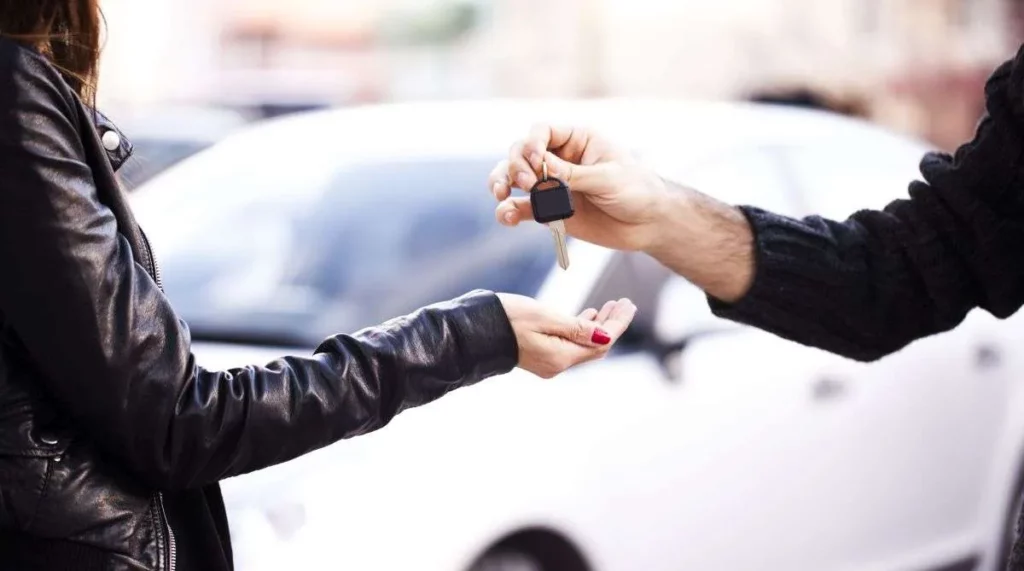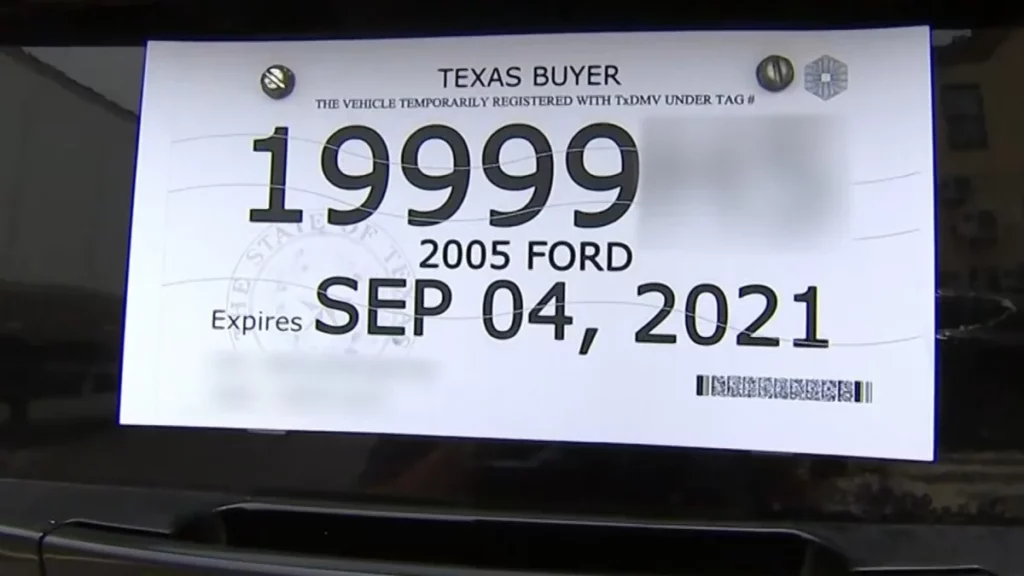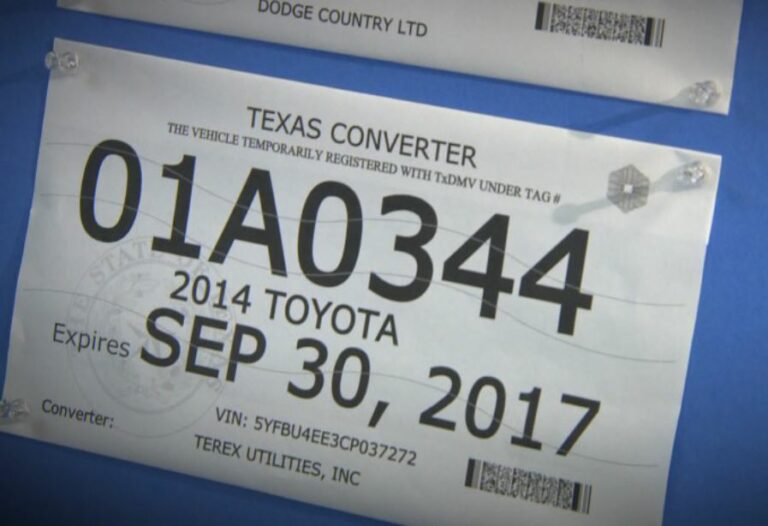Getting a temporary license plate is the easiest and fastest way to get your car on the road. Many new drivers assume that they need to wait weeks or months before they can drive their new vehicle, however, this couldn’t be further from the truth.
Temporary license plates can be purchased at your local DMV branch for an additional $5.00 fee; they cannot be purchased online.
You do not need to insure a temporary license plate; when you purchase one, you are signing an agreement with the state that states that you will only use it in accordance with the law and in compliance with all traffic safety laws (this means no joy riding). When you purchase a temporary license plate, your registration tags should arrive within 10 business days of purchase. If after 10 business days they haven’t arrived, we suggest calling DMV Customer Service at (603) 227-4030.
How Long Does Temporary License Plates Last For?
A temporary license plate lasts 7 days from the date of purchase. If you are issued a temporary plate on Monday, you will need to return the next Monday to get another one. You can however keep purchasing new ones each week that you want to drive your car!
When Can I Use Temp Plates?

You can use temporary license plates if:
- If you have recently purchased your vehicle and haven’t yet completed all of the necessary registration procedures (i.e., registering your vehicle in New Hampshire).
- When transferring ownership of an automobile after a recent sale or purchase.
- When you have purchased a vehicle from another state and need to use it for transportation before the registration is complete.
- It’s important to note that temporary license plates cannot be used:
- After your live-in partner, relative or immediate family member has moved out of the same household and left the registered motor vehicle with you as their official resident.
- If your car is not insured under a New Hampshire automobile insurance policy.
Why Should I Get a Temporary License Plate?

One of the most common reasons to get a temporary license plate is when drivers move from one state to another and legally drive their car in their previous state, but need it registered in their new home state as soon as possible. Usually, drivers who are moving might consider driving without registration tags or with expired registration tags, however, this puts themselves and others on the road at risk and is against New Hampshire law (the small fine may not seem like much but if you’re caught more than once expect your insurance rates to go up).
Another reason that people choose to purchase a temporary license plate is that they have just purchased a car and don’t have enough time to complete their registration before the temporary period ends. This can happen when you buy a car from an individual or small lot, as they may not be able to complete your registration right away.
It should be noted that it is illegal to purchase another person’s plate for use on your vehicle and it is also illegal to make your own plate; both of these actions are considered forms of forgery. You can only legally acquire a temporary license plate through the New Hampshire Department of Safety (DOS).
So if you need extra time to get vehicle inspection done (if required), register your new vehicle in NH, move across state lines, or want to drive without registration tags for any other reason; purchasing a temporary license plate is a great option that allows you to legally comply with the law.
What Paperwork Do I Need For Temporary License Plates?

When you purchase a temporary license plate from the DMV, they will provide a Temporary Tag Agreement that must be completed and presented at a local DMV office. The agreement states that you agree to only use the temporary tag for transportation purposes and legally comply with all traffic safety laws.
You should always carry your temporary license plate permit along with the original documents/items required for registration of your vehicle in New Hampshire, such as your:
- Vehicle title (must be signed by all previous owners).
- Proof of car insurance.
- Bill of sale or dealer’s invoice (if applicable).
If you are pulled over without any of these items, it can cause serious problems and put you under suspicion for committing crimes such as speeding, breaking the motor vehicle laws, or failure to register an out-of-state car.

